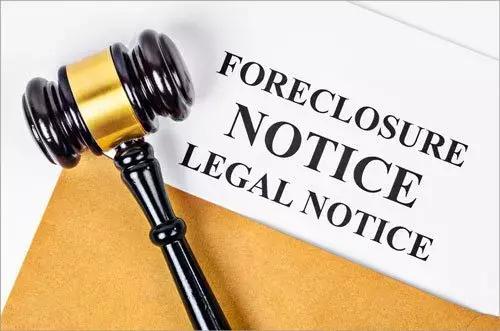Admin • May 01, 2018

If your home is in foreclosure, you need to explore your options for your property, carefully evaluating your financial situation and your future plans. Know that when you file for bankruptcy, regardless of which type, this temporarily halts the foreclosure process. What happens next varies based on the type of bankruptcy you file and your plans for the home. Read on to learn what you can do if your home is in foreclosure.
Options if You Want to Keep Your Home
If you decide that you want to keep your home, bankruptcy can help you accomplish this goal. There are two types of personal bankruptcy: chapter 7 and chapter 13. Under chapter 7 bankruptcy, the court seizes nonexempt assets and uses them to repay your debts. The court then dismisses the debt that exceeds these assets.
Chapter 13 bankruptcy permits you to keep all of your assets. However, you have to repay at least a portion of your debts. Your assets, income, and the kind of debt you have influences how much of your debt you must repay. Your payment plan lasts for three to five years. At the end of this period, the court discharges most of your remaining debt.
For many homeowners, Chapter 13 bankruptcy is the best option to keep a home. Your plan payment will include your missed mortgage payments (plus any fees) in addition to your regular payments. At the end of your payment plan, your mortgage is up-to-date. You will continue making payments according to the original terms of your loan.
You can also keep your home if you qualify for Chapter 7 bankruptcy. This option does not give you the opportunity to get caught up on your missed payments. To keep your home, you have to make these missed payments as soon as possible. Once your mortgage is current, you can reaffirm the loan and keep paying it according to the original terms.
If you can't make all of your missed payments, you can see if the lender will offer a loan modification to help you bring your loan up-to-date. Your lender has no obligation to grant the modification, so do not depend on this option if you are determined to keep your home.
Options If You Don't Want to Keep Your Home
Perhaps you are underwater on your home and owe more than it is worth, or maybe you know that your home is too expensive for your budget. If you are ready to let go of your home, filing for bankruptcy helps you accomplish this with minimal ramifications.
When filling out the paperwork for a Chapter 7 bankruptcy, you will indicate that you do not want to keep the home and plan to surrender it to your lender. If the balance of your mortgage exceeds the value of the home, the lender cannot force you to pay the difference. The bankruptcy trustee discharges this amount with the rest of your debt.
You can also surrender a home when filing for Chapter 13 bankruptcy, though the process is trickier. If the lender sells your home for less than it is worth, the lender can try to force you to pay the deficiency. Your chapter 13 plan will include this deficiency, and you will likely only have to be a small fraction of what you would otherwise owe. Consult with a qualified bankruptcy attorney to obtain exact figures.
Options Outside of Bankruptcy
If you have a 401(k) plan or individual retirement account (IRA), check the terms of your account to see if it permits a hardship withdrawal. Most plans consider a home in foreclosure a qualified hardship and permit you to take money to bring your mortgage up-to-date. However, this is a costly option that requires you to pay income taxes and a 10 percent early withdrawal fee on the amount that you take from the account.
Another alternative is to take a loan from your 401(k) plan to pay your missed mortgage payments. This alternative demands that you have room in your budget to repay the loan. Otherwise, it counts as an early withdrawal.
Concerned that you may lose your home? Contact Brace W. Luquire, Attorney at Law or schedule a free consultation.
Content, including images, displayed on this website is protected by copyright laws. Downloading, republication, retransmission
or reproduction of content on this website is strictly prohibited. Terms of Use | Privacy Policy